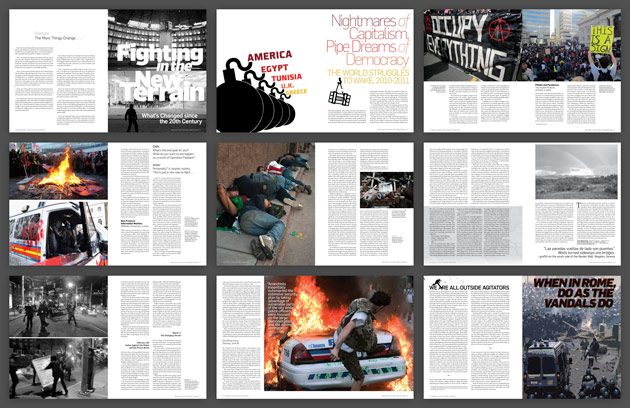In this installment in our series exploring the anarchist critique of democracy, guest author Uri Gordon discusses the attractions and risks of democratic discourse.
Like most political words, democracy is an “essentially contested” concept—its meaning is itself a political battleground. What political ideologies do, as mass patterns of political expression, is to “de-contest” or fix the meaning of such concepts and place them in particular relationships. The term “equality,” for example, can mean equal access to advantage (liberalism), equal responsibility to the national community (fascism), or equal power in a classless society (anarchism). On such a reading, there is no way objectively to determine the meaning of such concepts—all that exists are distinct usages, each of them regularly grouped with other concepts in one or another ideological formation.
I would therefore like to suspend the discussion of the appropriate conceptual understanding of democracy, and instead ask about the strategic choice to employ the term. Is it worthwhile for anarchists to de-contest “democracy” in ways that point towards statelessness and non-domination? Two arguments follow. The first is that anarchist invocations of democracy are a relatively new and distinctly American phenomenon. The second is that the invocation is problematic, because its rhetorical structure and audience targeting almost inevitably end up appealing to patriotic sentiments and national origin myths.














